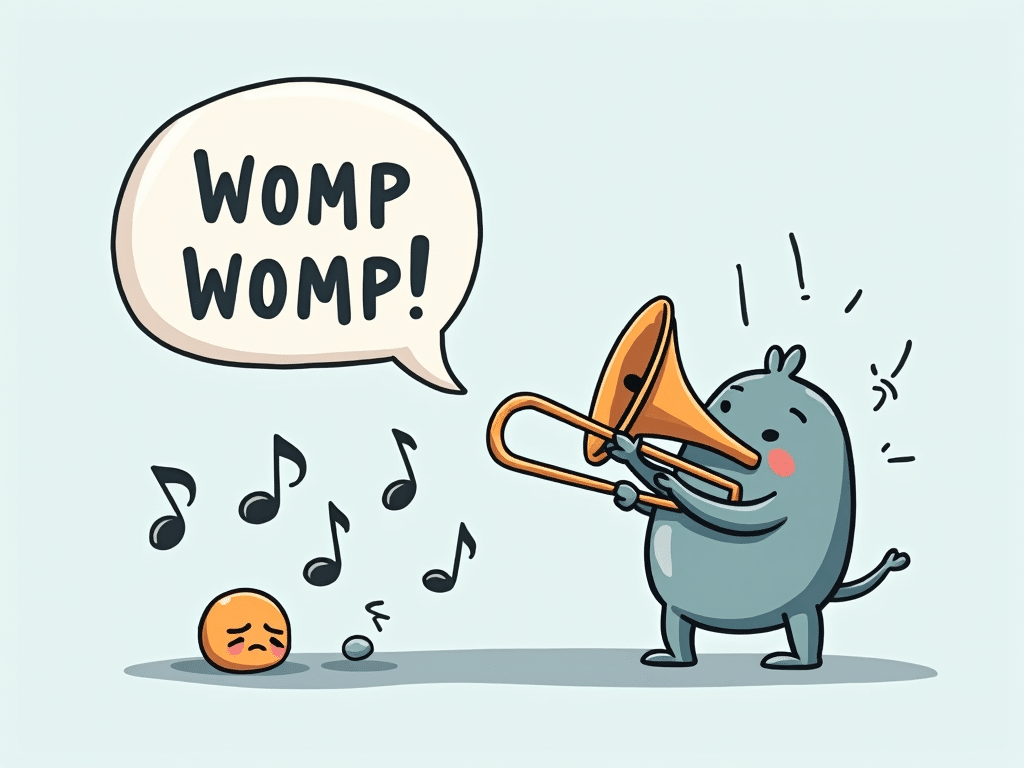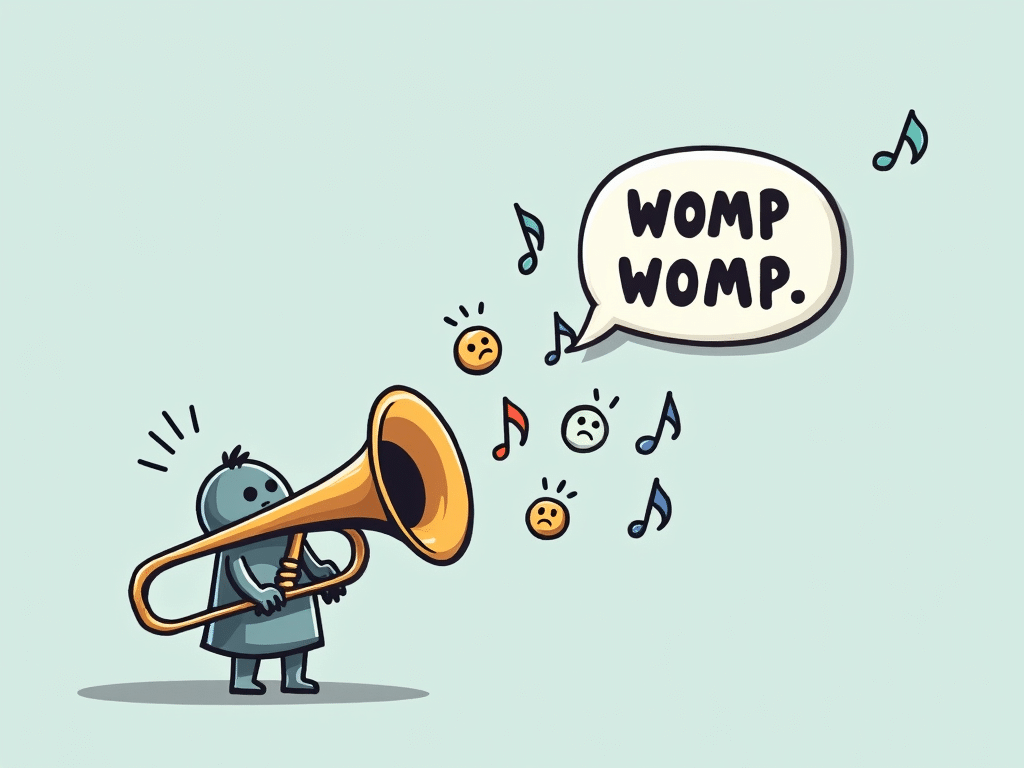Picture this: you’re telling your best friend about your latest dating mishap, and just as you get to the part where your date stood you up, they hit you with a “womp womp.” 😅 It’s like a verbal eye-roll, a playful way of saying, “Well, that sucks!”
| Key Takeaways |
|---|
| 1. “Womp womp” mimics the sound of a sad trombone 🎺 |
| 2. It’s used to express disappointment, failure, or an anticlimactic situation |
| 3. The phrase originated in vaudeville shows and early radio/TV 📺 |
| 4. It’s now a popular internet meme and casual expression 💬 |
| 5. Context and tone are crucial when using “womp womp” 🙊 |
“Womp womp” is an onomatopoeic phrase that mimics the sound of a sad trombone, often used to humorously express disappointment, failure, or an anticlimactic situation. It’s like the verbal equivalent of a deflated balloon or a wilted flower – a way to say, “Well, that didn’t go as planned!” without being too serious about it.
What Does Womp Womp Mean?

Origin and Etymology
Alright, let’s take a little trip down memory lane. 🚶♂️ The phrase “womp womp” is believed to have originated way back in the late 19th or early 20th century, evolving from the “sad trombone” sound effect used in vaudeville shows, radio programs, and early television.
Imagine being in the audience of an old-timey show, and the comedian on stage tells a joke that falls flatter than a pancake. 🥞 Cue the descending trombone notes, signaling to everyone that the joke was a total dud. It’s like the musical version of a cricket chirping after an awkward silence.
Over time, this sound effect became a shorthand way to indicate a sense of failure, a contestant losing, or a general “womp womp” moment. It’s the audio equivalent of a sad face emoji. 😢
Usage and Cultural Impact

Fast forward to the digital age, and “womp womp” has taken on a life of its own! It’s now a popular internet meme and a widely recognized expression in casual conversation. You’ll see it all over social media platforms like Twitter, Instagram, and TikTok, where people use it in captions, comments, and videos to denote playful mockery or react to minor failures and disappointments.
For example, let’s say you post a video of yourself attempting a new dance challenge, but you end up tripping over your own feet. 🕺💃 Your friends might comment with a “womp womp” to tease you about your less-than-graceful moves, but in a good-natured way.
However, it’s important to remember that context is key when it comes to using “womp womp.” While it’s often used for humorous effect, it can sometimes come across as insensitive or trivializing, especially when used in response to serious matters.
Imagine if someone shared a story about losing their job, and another person replied with “womp womp.” 😬 Not cool, right? It’s like showing up to a funeral in a clown costume – it’s just not the right vibe.
In fact, there have been some notable controversies that have arisen from people using the phrase dismissively in political discussions. It’s a reminder that even seemingly harmless expressions can take on a different meaning depending on the situation.

Conclusion
At the end of the day, “womp womp” is a perfect example of how language evolves and adapts over time, across different media and social contexts. What started as a simple comedic sound effect has transformed into a nuanced expression that captures a whole range of reactions, from lighthearted amusement to pointed critique.
It’s like watching a caterpillar turn into a butterfly, but instead of wings, it’s got a sense of humor. 🦋 So, the next time you hear someone drop a “womp womp,” take a moment to appreciate the journey this little phrase has been on.
But remember, as with any slang or meme, it’s all about knowing your audience and using it in the right context. You wouldn’t want to “womp womp” your way into an awkward situation, right? 😅
So go forth and use this fun little phrase wisely, my friends! And if you want to dive even deeper into the world of slang, internet culture, and quirky expressions, be sure to check out some of the other awesome content on SlangInfo.com.
Trust me, it’s a total “womp womp” if you don’t! 😉







